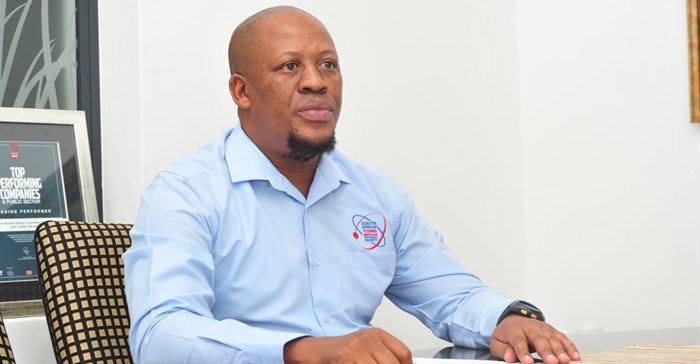South Africa relies on coal-fired power stations to produce approximately 90% of its electricity. Moving forward, the country's aim should be to reduce this percentage, with a move to greater use of renewable energy sources.

Gaopalelwe Santswere, executive chairperson, South African Young Nuclear Professionals Society
There are abundant cases where both public and private organisations working hard to decarbonise the economy. For example, in South Africa, a multinational consortium that was building one of the country's first privately-owned, coal-fired power stations recently asked to withdraw from the 630MW Thabametsi plant project.
The global energy mix is shifting from fossil fuels to renewables, and carbon-free options need to be expanded, rather than constrained. Many experts agree that the ideal future energy mix is nuclear accompanied by renewables: a hybrid energy system combining both not only helps to significantly reduce greenhouse gas emissions, but also ensures energy stability.
Denuclearisation could be an expensive miscalculation
Every nation chooses its own way to ensure the energy future, and often Germany is cited as example of a successful anti-nuclear lobby. In reaction to anti-nuclear protests caused by Japan’s Fukushima Daiichi plant meltdown, the German Bundestag adopted the Atomic Energy Act on 30 June 2011. It regulates the end of the use of nuclear energy for commercial electricity generation in Germany by the end of 2022. Most recently, the 1,402MW Philippsburg 2 pressurised water reactor unit near Karlschtadt was shut down permanently on 31 December 2019. There are six nuclear plants still in commercial operation in Germany, down from 17 in 2011.
Some other countries followed Germany’s example on its path to denuclearisation, but a study published last month by the nonprofit National Bureau of Economic Research (USA) suggests that Germany’s rejection of nuclear power was an expensive miscalculation.
The researchers, based at UC Berkeley, UC Santa Barbara, and Carnegie Mellon University, analysed data gathered between 2011 and 2017. They found that nuclear power was mostly replaced with power from coal plants, which led to the release of an additional 36-million tons of carbon dioxide per year, or about a 5% increase in emissions. More frustratingly, the analysis shows that burning more coal led to local increases in particle pollution and sulfur dioxide and likely killed an additional 1,100 people per year from respiratory or cardiovascular illnesses.
Altogether, the researchers calculated that the increased carbon emissions and deaths caused by local air pollution amounted to a social cost of about $12bn per year. The study found that this sum is bigger than the cost of maintaining nuclear power plants functioning by billions of dollars, even when the cost of nuclear waste storage is considered. Not speaking about an increase of electricity tariffs for end consumers which the shutdown of nuclear plants will inevitably lead to.
Climate change will be difficult to resolve
A study of the Massachusetts Institute of Technology (MIT) entitled Future of Nuclear Energy in a Carbon-Constrained World released in 2018, shows that unless nuclear energy is meaningfully incorporated into the global mix of low-carbon energy technologies, the challenge of climate change will be much more difficult and costly to solve. The study shows that by 2060, energy costs will be twice lower in the countries where the share of nuclear in the energy mix achieve 50 to 60% than in the countries with smaller nuclear share.
Germany is unlikely to reverse course, but the recent studies’ conclusions give a pause for thought to South Africa, where the future of nuclear energy is currently under public debate.








































